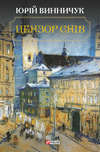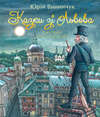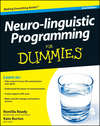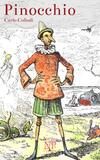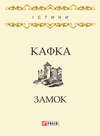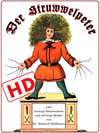Kitabı oku: «The Classic Myths in English Literature and in Art (2nd ed.) (1911)», sayfa 27
CHAPTER XXVIII
MYTHS OF NORSE AND OLD GERMAN HEROES
282. The Saga of the Volsungs. 369 Sigi, son of Odin, was a mighty king of the Huns whom Odin loved and prospered exceedingly. Rerir, also, the son of Sigi, was a man of valor and one who got lordship and land unto himself; but neither Sigi nor Rerir were to compare with Volsung, who ruled over Hunland after his father Rerir went home to Odin.
To Volsung were born ten sons and one daughter, – Signy by name; and of the sons Sigmund was the eldest and the most valiant. And the Volsungs abode in peace till Siggeir, king of Gothland, came wooing Signy, who, though loath to accept him, was, by her father's desire, betrothed to him.
Now on the night of the wedding great fires were made in the hall of the Volsungs, and in the midst stood Branstock, a great oak tree, about which the hall had been built, and the limbs of the tree spread over the roof of the hall; and round about Branstock they sat and feasted, and sang of ancient heroes and heard the music of the harp that went from hand to hand.
But e'en as men's hearts were hearkening some heard the thunder pass370
O'er the cloudless noontide heaven; and some men turned about
And deemed that in the doorway they heard a man laugh out.
Then into the Volsung dwelling a mighty man there strode,
One-eyed and seeming ancient, yet bright his visage glowed;
Cloud-blue was the hood upon him, and his kirtle gleaming-gray
As the latter morning sun-dog when the storm is on the way;
A bill he bore on his shoulder, whose mighty ashen beam
Burnt bright with the flame of the sea, and the blended silver's gleam.
And such was the guise of his raiment as the Volsung elders had told
Was borne by their fathers' fathers, and the first that warred in the wold.
So strode he to the Branstock, nor greeted any lord,
But forth from his cloudy raiment he drew a gleaming sword,
And smote it deep in the tree-bole, and the wild hawks overhead
Laughed 'neath the naked heaven as at last he spake and said:
"Earls of the Goths, and Volsungs, abiders on the earth,
Lo there amid the Branstock a blade of plenteous worth!
The folk of the war-wand's forgers wrought never better steel
Since first the burg of heaven uprose for man-folk's weal.
Now let the man among you whose heart and hand may shift
To pluck it from the oak-wood e'en take it for my gift.
Then ne'er, but his own heart falter, its point and edge shall fail
Until the night's beginning and the ending of the tale.
Be merry, Earls of the Goth-folk, O Volsung Sons be wise,
And reap the battle-acre that ripening for you lies:
For they told me in the wild wood, I heard on the mountain-side
That the shining house of heaven is wrought exceeding wide,
And that there the Early-comers shall have abundant rest
While Earth grows scant of great ones, and fadeth from its best,
And fadeth from its midward, and groweth poor and vile: —
All hail to thee, King Volsung! farewell for a little while!"
So sweet his speaking sounded, so wise his words did seem
That moveless all men sat there, as in a happy dream
We stir not lest we waken; but there his speech had end
And slowly down the hall-floor, and outward did he wend;
And none would cast him a question or follow on his ways,
For they knew that the gift was Odin's, a sword for the world to praise.
Then all made trial, Siggeir and his earls, and Volsung and his people, to draw forth the sword from Branstock, but with no success, till Sigmund, laying his hand carelessly on the precious hilt, drew forth the naked blade as though it were loose in the oak. Whereupon Siggeir offered money for the sword, but Sigmund scorned the offer.
But in time Siggeir had his vengeance. Inviting King Volsung and his sons to Gothland, he fell upon them, slew the king, and suffered the sons, fastened under a log, to be devoured in succession by a she-wolf – all but Sigmund, who through the wile of his sister Signy was rescued. He, driven to the life of an outlaw, sought means to avenge his father, and Signy, on her part, strove to aid him, – without avail, however, till Sinfiotli, the son of herself and Sigmund, was grown to manhood. This youth bore Sigmund company. For a season, as wolves, they scoured the woods; finally resuming the form of men, they slew the children of Siggeir and burned him in his hall. Signy, having helped to avenge her father, died with her husband.
Sigmund, thereupon, became king, and took to himself a wife. But she, suffering injury at the hands of Sinfiotli, poisoned him with a horn of ale. Then Sigmund sorrowed nigh to death over his son, and drove away that queen, and soon after she died. He then married Hiordis the fair; but before long, doing battle against Lyngi, the son of Hunding, – a chieftain who also had loved the fair Hiordis, – he got his death wound:
For lo, through the hedge of the war-shafts a mighty man there came,
One-eyed and seeming ancient, but his visage shone like flame;
Gleaming-gray was his kirtle, and his hood was cloudy-blue;
And he bore a mighty twibil, as he waded the fight-sheaves through,
And stood face to face with Sigmund, and upheaved the bill to smite.
Once more round the head of the Volsung fierce glittered the Branstock's light,
The sword that came from Odin; and Sigmund's cry once more
Rang out to the very heavens above the din of war.
Then clashed the meeting edges with Sigmund's latest stroke,
And in shivering shards fell earthward that fear of worldly folk.
But changed were the eyes of Sigmund, and the war-wrath left his face;
For that gray-clad mighty helper was gone, and in his place
Drave on the unbroken spear-wood 'gainst the Volsung's empty hands:
And there they smote down Sigmund, the wonder of all lands,
On the foemen, on the death-heap his deeds had piled that day.
To Hiordis, after Sigmund's death, was born Sigurd, like whom was never man for comeliness and valor and great-heartedness and might. He was the greatest of the Volsungs. His foster-father was Regin, the son of Rodmar, a blacksmith, who taught him the lore of runes and many tongues; and, by means of a story of ancient wrongs, incited him to the destruction of the dragon Fafnir. For Regin told that while the gods, Odin and Hœnir, were wandering with Loki near Rodmar's house, Loki slew one of Rodmar's sons, Otter. Whereupon Rodmar demanded that the gods should fill the Otter-skin with gold and cover it with gold. Now Loki, being sent to procure the gold, caught Andvari the dwarf, and from him procured by force a hoard of the precious metal and with it a magic ring, whose touch bred gold. But Andvari cursed the ring and the gold and all that might possess either. The gods forthwith filled Otter with the dwarf's gold, and surrendered both gold and ring to Rodmar. Immediately the curse began to work. Fafnir, brother of Regin and Otter, slew Rodmar and seized the treasure and, assuming a dragon's form, brooded upon the hoard. With this tale Regin egged on Sigurd to the undoing of Fafnir. He welded him, too, a resistless sword out of the shards of Sigmund's sword, Gram (the wrath). Then Sigurd swore that he would slay the dragon. But first, riding on his horse, Greyfell, of the blood of Odin's Sleipnir, he avenged upon the sons of Hunding the death of his father. This done, Sigurd rode to Glistenheath and slew Fafnir, the dragon, and eating of his heart, learned the language of the birds; and at their advice he slew Regin also, who plotted against him.
So, setting the ring of Andvari on his finger and bearing the gold before him on his horse, Greyfell, Sigurd comes to the Hill of Hindfell:
And sitteth awhile on Greyfell on the marvelous thing to gaze:
For lo, the side of Hindfell inwrapped by the fervent blaze,
And naught 'twixt earth and heaven save a world of flickering flame,
And a hurrying, shifting tangle, where the dark rents went and came…
Now Sigurd turns in his saddle, and the hilt of the Wrath he shifts,
And draws a girth the tighter; then the gathered reins he lifts,
And crieth aloud to Greyfell, and rides at the wildfire's heart;
But the white wall wavers before him and the flame-flood rusheth apart,
And high o'er his head it riseth, and wide and wild is its roar
As it beareth the mighty tidings to the very heavenly floor;
But he rideth through its roaring as the warrior rides the rye,
When it bows with the wind of the summer and the hid spears draw anigh;
The white-flame licks his raiment and sweeps through Greyfell's mane,
And bathes both hands of Sigurd and the hilts of Fafnir's bane,
And winds about his war-helm and mingles with his hair,
But naught his raiment dusketh or dims his glittering gear; —
Then it falls and fades and darkens till all seems left behind,
And dawn and the blaze is swallowed in mid-mirk stark and blind…
Then before him Sigurd sees a shield-hung castle, surmounted by a golden buckler, instead of a banner, which rings against the flagstaff. And he enters and finds the form of one asleep, in armor cap-a-pie.
So he draweth the helm from the head, and, lo, the brow snow-white,
And the smooth unfurrowed cheeks, and the wise lips breathing light;
And the face of a woman it is, and the fairest that ever was born,
Shown forth to the empty heavens and the desert world forlorn:
But he looketh, and loveth her sore, and he longeth her spirit to move,
And awaken her heart to the world, that she may behold him and love.
And he toucheth her breast and her hands, and he loveth her passing sore;
And he saith, "Awake! I am Sigurd," but she moveth never the more…
Then with his bright blade Sigurd rends the ring-knit mail that incloses her, "till naught but the rippling linen is wrapping her about," —
Then a flush cometh over her visage and a sigh upheaveth her breast,
And her eyelids quiver and open, and she wakeneth into rest;
Wide-eyed on the dawning she gazeth, too glad to change or smile,
And but little moveth her body, nor speaketh she yet for a while;
And yet kneels Sigurd, moveless, her wakening speech to heed,
While soft the waves of the daylight o'er the starless heavens speed,
And the gleaming vines of the Shield-burg yet bright and brighter grow,
And the thin moon hangeth her horns dead-white in the golden glow.
Then she turned and gazed on Sigurd, and her eyes met the Volsung's eyes.
And mighty and measureless now did the tide of his love arise,
For their longing had met and mingled, and he knew of her heart that she loved,
As she spake unto nothing but him and her lips with the speech-flood moved.
Brynhild, it was, – the Valkyrie, – who long time had lain in that enchanted sleep that Odin, her father, had poured over her, dooming her to mortal awakening and to mortal love, for the evil she had wrought of old when she espoused the cause in battle of those whom the Norns had predestined to death. Her might none but the fearless awaken; and her had Sigurd awakened; and she loved him, for he was without fear and godlike. And she taught him many wise sayings; and they plighted troth, one to the other, both then and again; and Sigurd gave her the ring of Andvari. But they were not destined to dwell together in wedlock, and Brynhild, foreseeing the future, knew even this.
Sigurd was to wed with another than Brynhild, and it fell in this wise. In the land of the Nibelungs (Niblungs, Nibelungen) dwelt Gudrun, daughter of Giuki, the Nibelung king. And Gudrun dreamed a dream in which a fair hawk feathered with feathers of gold alighted upon her wrist. She went to Brynhild for the interpretation of the dream. "The hawk," said Brynhild, "is Sigurd." And so it came to pass. Sigurd, visiting the court of the Nibelungs, was kindly entreated by King Giuki and his three sons, Gunnar, Hogni, and Guttorm; and he performed deeds of valor such that they honored him. But after many days, Grimhild, the mother of Gudrun, administered to Sigurd a magic potion that removed from him all memory of Brynhild. So Sigurd loved and wedded the fair Gudrun. Indeed he soon joined others in urging his wife's brother Gunnar, a doughty warrior, to sue for the hand of Brynhild herself. But Brynhild would have no one that could not ride through the flames drawn up around her hall. After Gunnar had made two unsuccessful attempts, Sigurd, assuming the form of King Gunnar, mounted Greyfell and rode for the second time through the flames of Hindfell. Then, still wearing the semblance of Gunnar, he gained the consent of Brynhild to the union, and exchanged rings with her, – she giving him none other than the ancient ring of Andvari back again. But even this did not recall to Sigurd's memory his former ride and his former love. Returning to the land of the Nibelungs, he announced the success of his undertaking and told all things to Gudrun, giving her the fatal ring that he had regained from Brynhild.
In ten days came Brynhild by agreement to the Hall of the Nibelungs, and though she knew well the deceit that had been practiced on her, she made no sign; nay, was wedded, according to her promise, to King Gunnar. But as they sat at the wedding-feast, the charm of Grimhild was outworn, – Sigurd looked upon Gunnar's bride and knew the Brynhild of old, the Valkyrie, whom he had loved; "and Brynhild's face drew near him with eyes grown stern and strange."
But, apparently, all went well till the young queens, one day bathing in the Water of the Nibelungs, fell into contention on a matter of privilege. Brynhild claimed precedence in entering the river on the ground that Gunnar was the liege lord of Sigurd. Gudrun, white with wrath, flashed out the true story of the ride through the flames, and thrust in Brynhild's face the Andvari ring. Consumed with jealousy, Brynhild plotted revenge. She loved Sigurd still, and he, since he had regained his memory, could not overcome his love for her. But the insult from Gudrun Brynhild would not brook. By her machinations, Guttorm, the brother of Gudrun, was incited to slay Sigurd. He, accordingly, stabbed the hero while asleep, but Sigurd, throwing Gram at the assassin, cut him in twain before he could escape.
Woe me! how the house of the Niblungs by another cry was rent,
The awakening wail of Gudrun, as she shrank in the river of blood
From the breast of the mighty Sigurd: he heard it and understood,
And rose up on the sword of Guttorm, and turned from the country of death,
And spake words of loving-kindness as he strove for life and breath;
"Wail not, O child of the Niblungs! I am smitten, but thou shalt live,
In remembrance of our glory, mid the gifts the gods shall give!..
It is Brynhild's deed," he murmured, "and the woman that loves me well;
Nought now is left to repent of, and the tale abides to tell.
I have done many deeds in my life-days, and all these, and my love, they lie
In the hollow hand of Odin till the day of the world go by.
I have done and I may not undo, I have given and I take not again;
Art thou other than I, Allfather, wilt thou gather my glory in vain?"
So ended the life of Sigurd. Brynhild, overcome with sorrow, dealt herself a mortal wound and was burned on the funeral pyre beside Sigurd the Volsung.
In time Gudrun became the queen of Atli, the Budlung. He, in order to obtain the hoard of Sigurd, which had passed into the hands of the Nibelungs, – Gudrun's brothers, – bade them visit him in Hunland. Fully warned by Gudrun, they still accepted the invitation and, arriving at the hall of Atli, were after a fearful conflict slain. But they did not surrender the hoard – that lay concealed at the bottom of the Rhine. Gudrun with the aid of Nibelung, her brother Hogni's son, in the end slew Atli, set fire to his hall, and brought ruin on the Budlung folk. Then leaping into the sea, she was borne with Swanhild, her daughter by Sigurd, to the realm of King Jonakr, who became her third husband. Swanhild, "fairest of all women, eager-eyed as her father, so that few durst look under the brows of her," met, by stress of love and treachery, a foul end in a foreign land, trampled under foot of horses.
Finally Gudrun sent her sons by Jonakr to avenge their half-sister's death; and so, bereft of all her kin and consumed with sorrow, she called upon her ancient lover, Sigurd, to come and look upon her, as he had promised, from his abiding-place among the dead. And thus had the words of her sorrow an end.
Her sons slew Jormunrek, the murderer of Swanhild, but were themselves done to death by the counsel and aid of a certain warrior, seeming ancient and one-eyed, – Odin the forefather of the Volsungs, – the same that had borne Sigi fellowship, and that struck the sword into Branstock of Volsung's hall, and that faced Sigmund and shattered Gram in the hour of Sigmund's need, and that brought to Sigurd the matchless horse Greyfell, and oft again had appeared to the kin of the Volsungs; – the same god now wrought the end of the Nibelungs. The hoard and the ring of Andvari had brought confusion on all into whose hands they fell.
283. The Lay of the Nibelungs. 371 In the German version of this story – called the Nibelungenlied – certain variations of name, incident, and character appear. Sigurd is Siegfried, dwelling in Xanten near the Rhine, the son of Siegmund and Siegelind, king and queen of the Netherlands. Gudrun is Kriemhild, sister of Gunther (Gunnar), king of the Burgundians, and niece of Hagen (Hogni), a warrior of dark and sullen mien, cunning, but withal loyal and brave, the foe of the glorious Siegfried. Siegfried weds Kriemhild, takes her to the Netherlands and lives happily with her, enjoying the moneys of the Nibelungen hoard, which he had taken not from a dwarf, as in the Norse version, but from two princes, the sons of King Nibelung. Meanwhile Gunther dwells in peace in the Burgundian land, husband of the proud Brunhild, whom Siegfried had won for him by stratagem not altogether unlike that of the Norse story. For the Brunhild of the Yssel-land had declared that she would marry no man save him who should surpass her in athletic contest. This condition Siegfried, wearing the Tarnkappe, a cloak that rendered him invisible, had fulfilled for Gunther. He had also succored poor Gunther after his marriage with Brunhild. For that heroine, in contempt of Gunther's strength, had bound him hand and foot and suspended him from a nail on their bedroom wall. By agreement Siegfried had again assumed Gunther's form and, after a fearful tussle with the queen, had reduced her to submission, taking from her the ring and girdle which were the secret sources of her strength, and leaving her to imagine that she had been conquered by her bridegroom, Gunther. The ring and girdle Siegfried had bestowed upon Kriemhild, unwisely telling her at the same time the story of Brunhild's defeat. Although the Nibelungenlied offers no explanation, it is evident that the injured queen of Yssel-land had recognized Siegfried during this ungallant intrigue; and we are led to infer that there had been some previous acquaintance and passage of love between them.

Fig. 188. Gunther and Brunhild.
From the fresco by Julius Schnorr von Carolsfeld
At any rate, Siegfried and Kriemhild, retiring to the Netherlands, were ruling happily at Xanten by the Rhine; and all might have continued in peace had not Brunhild resented the lack of homage paid by Siegfried, whom she had been led to regard as a vassal, to Gunther, his reputed overlord.
In her heart this thought she fostered, deep in its inmost core;372
That still they kept such distance, a secret grudge she bore.
How came it that their vassal to court declined to go,
Nor for his land did homage, she inly yearned to know.
She made request of Gunther, and begged it so might be,
That she the absent Kriemhild yet once again might see,
And told him, too, in secret, whereon her thoughts were bent, —
Then with the words she uttered her lord was scarce content.

Fig. 189. Siegfried and Kriemhild
From the fresco by Julius Schnorr von Carolsfeld
But Gunther yielded, and Siegfried and Kriemhild were invited to Worms, nominally to attend a high festival.
… With what joy and gladness welcomed were they there!
It seemed when came dame Brunhild to Burgundy whilere,
Her welcome by dame Kriemhild less tender was and true;
The heart of each beholder beat higher at the view…
Received was bold Sir Siegfried, as fitted well his state,
With the highest honors; no man bore him hate.
Young Giselher and Gernot proffered all courtly care;
Never met friend or kinsman reception half so fair.
One day at the hour of vespers certain knights proved themselves at tilting in the regal courtyard. Conspicuous among these was Siegfried. And the proud queens sitting together were thinking each on the good knight that she loved full well. Then outspoke fair Kriemhild, "My husband is of such might that surely he should rule these realms"; Brunhild answered, "So long as Gunther lives that can never be."
… Thereto rejoined fair Kriemhild, "See'st thou how proud he stands,
How proud he stalks, conspicuous among those warrior bands,
As doth the moon far-beaming the glimmering stars outshine?
Sure have I cause to pride me when such a knight is mine."
Thereto replied queen Brunhild, "How brave soe'er he be,
How stout soe'er or stately, one greater is than he.
Gunther, thy noble brother, a higher place may claim,
Of knights and kings the foremost in merit and in fame."
So began the altercation. It attained its climax the same day, when each queen attempted to take precedence of the other in entering the cathedral for the celebration of the mass.
Both met before the minster in all the people's sight;
There at once the hostess let out her deadly spite.
Bitterly and proud she bade fair Kriemhild stand;
"No vassaless precedeth the lady of the land."
Then, full of wrath, Kriemhild, in terms anything but delicate, acquainted her haughty sister-in-law with the deception that had twice been practiced upon her by Siegfried and Gunther; nay, worse, corroborated her statement by displaying both ring and girdle that Brunhild had lost. The altercation came to the ears of the kings. Gunther made complaint to Siegfried. Then,
… "Women must be instructed," said Siegfried, the good knight,
"To leave off idle talking and rule their tongues aright.
Keep thy fair wife in order, I'll do by mine the same.
Such overweening folly puts me indeed to shame."
But it was too late to mend the matter. With devilish intent Brunhild plotted vengeance. Siegfried, the author of her mortification, must die the death. The foes of Siegfried persuaded his wife, unaware of their design, to embroider in his vesture a silken cross over the one spot where the hero was vulnerable. Then the crafty Hagen, who had been suborned by Brunhild to the baleful deed, bided his time. One day, Gunther, Hagen, and Siegfried, heated in running, stayed by a brook to drink. Hagen saw his chance.
… Then, as to drink, Sir Siegfried down kneeling there he found,
He pierced him through the crosslet, that sudden from the wound
Forth the life-blood spurted, e'en o'er his murderer's weed.
Nevermore will warrior dare so foul a deed…
… With blood were all bedabbled the flowerets of the field.
Some time with death he struggled as though he scorned to yield
E'en to the foe whose weapon strikes down the loftiest head.
At last prone in the meadow lay mighty Siegfried dead.
Brunhild glories in the fall of Siegfried and exults over the mourning widow. Kriemhild, sitting apart, nurses schemes of vengeance. Her brothers affect to patch up the breach in order that they may obtain the hoard of the Nibelungs. But this treasure, after it has been brought to Worms, is sunk, for precaution's sake, by Hagen, in the Rhine. Although in time Kriemhild becomes the wife of King Etzel (Atli, Attila) of Hunland, still she does not forget the injury done her by her kin. After thirteen years she inveigles her brothers and their retainers, called now Nibelungs because of their possession of the hoard, to Etzel's court, where, after a desperate and dastardly encounter, in which their hall is reduced to ashes, they are all destroyed save Gunther and Hagen. Immediately, thereafter, Gunther's head is cut off at her orders; and she herself, with Siegfried's sword Balmung, severs the head of the hated Hagen from his body. With these warriors the secret of the hidden hoard passes. Kriemhild, having wreaked her vengeance, falls by the hand of one of her husband's knights, Hildebrand, who, with Dietrich of Bern, had played a prominent part among the associates of King Etzel.
"I cannot say you now what hath befallen since;
The women all were weeping, and the Ritters and the prince,
Also the noble squires, their dear friends lying dead:
Here hath the story ending; this is the Nibelungen's Need."373


